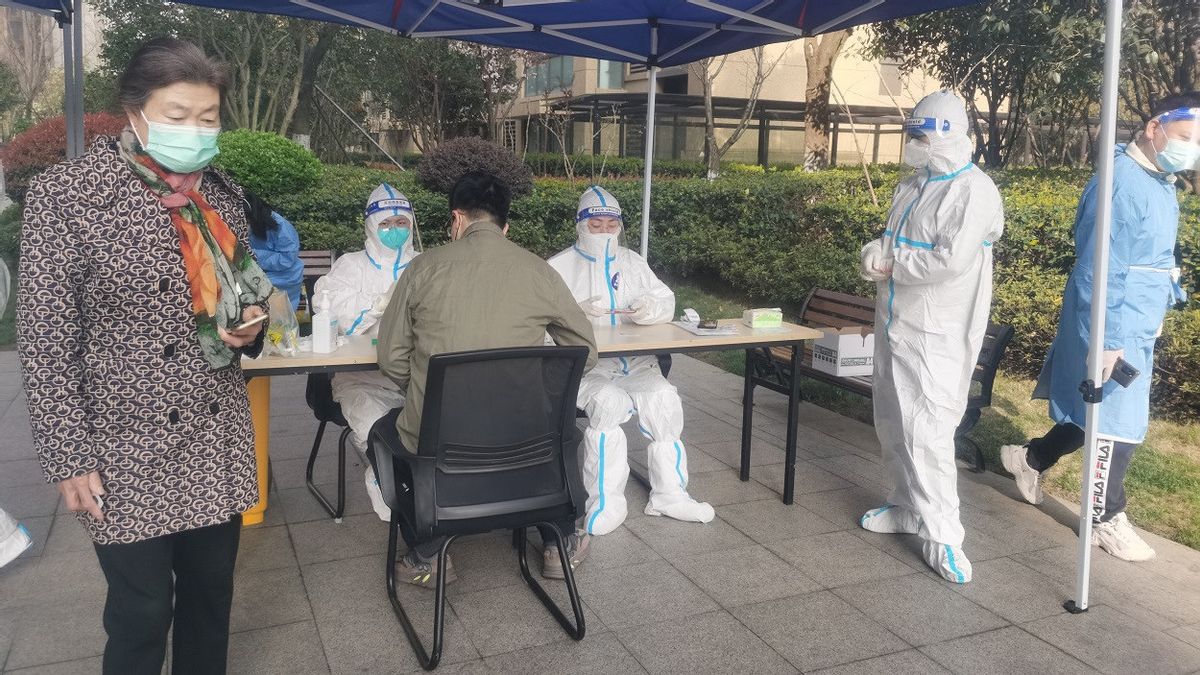JAKARTA - Residents of Beijing, China will undergo COVID-19 tests as infection cases in the capital continue to grow, reflecting the case of the outbreak in Shanghai, with 20 million residents expected to take mass testing.
Amid comparisons with Shanghai, where more than 1,000 cases were reported in March, before widespread restrictions were finally imposed on 26 million people, many in Beijing flocked to supermarkets to stock up on food and supplies fearing a sudden local lockdown. arrive.
Authorities on Tuesday began closing several gyms, theaters and tourist sites, a day after Beijing began testing residents of its most populous district, Chaoyang. At the end of Monday, Beijing announced it would carry out tests in 10 other districts and an economic development zone on Saturday.
China's capital reported 33 new locally transmitted cases for April 25, the city's health authority said on Tuesday, 32 of whom are symptomatic and one asymptomatic. That's slightly higher than the 19 community infections reported the day before.
Beijing's decision to test most of its total population of 22 million, a day after detecting a small number of infections contrasts with Shanghai, which waited about a month after the outbreak began before moving to mass city-wide testing in early April.
Three rounds of PCR tests will be carried out from Tuesday to Saturday in districts including Haidian, where Liu Wentao, a cook who left his hostel to be tested, expressed concern about how quickly the virus could spread, though confident Beijing can avoid a Shanghai-like lockdown.
"Beijing is the capital, the control of the virus is stronger than anywhere else, I don't think it will be like Shanghai, where it suddenly rises to thousands of cases," Liu said.
While Beijing's latest COVID-19 outbreak is modest by global standards, a Shanghai-style lockdown of the Chinese capital will further cloud the country's economic prospects.
The Shanghai economy slowed in the first quarter, hurt by a rare decline in industrial output and local consumption, due to the city's COVID outbreak. In March, retail sales dipped 18.9 percent.
"Obviously, Shanghai has taught one lesson, which is that if you follow this line of total lockdown, not only is it very expensive, but it is economically damaging and depresses social fiber," EU Chamber of Commerce president Joerg Wuttke told Reuters.
The English, Chinese, Japanese, Arabic, and French versions are automatically generated by the AI. So there may still be inaccuracies in translating, please always see Indonesian as our main language. (system supported by DigitalSiber.id)













